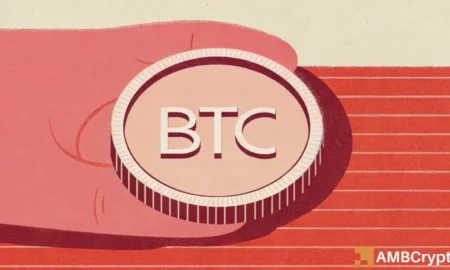Exploring SEC’s Perspective on Memecoins and the Future of Crypto Regulation
In a significant development for the cryptocurrency landscape, SEC Commissioner Mark Uyeda has clarified that entities such as memecoins, Proof-of-Work (PoW) assets, and non-interest-paying stablecoins do not qualify as securities. During a recent CNBC interview, Uyeda emphasized that these digital assets lack essential investment contracts that typically characterize securities under the Howey test. This clarification marks a pivotal moment for the crypto community as it sets the stage for how certain cryptocurrencies will be treated under U.S. law.
The SEC’s position on memecoins aligns with a previous staff guidance issued on February 27, which stated that transactions involving this category of cryptocurrencies do not constitute the offer and sale of securities under federal laws. This stance has broad implications for investors and developers alike, suggesting that memecoins may operate in a more flexible regulatory environment than previously assumed. However, the SEC also cautioned that if any product labeled as a memecoin is intended to generate profits through the managerial efforts of others, it could still face scrutiny. This highlights an ongoing balancing act between fostering innovation and protecting investors within the crypto space.
As the debate around memecoins evolves, the market is witnessing a surge in applications for exchange-traded funds (ETFs) centered around these digital assets. Leading the charge is Dogecoin (DOGE), which is currently the front-runner in ETF applications. Predictions from Polymarket suggest that while the odds of approval for a DOGE ETF are split at 50/50 by the end of 2025, there is a significant degree of uncertainty among investors and market analysts regarding SEC’s ultimate decision. This uncertainty reflects broader challenges facing the regulatory landscape as it seeks to keep pace with the rapid evolution of cryptocurrency products.
The SEC’s emphasis on principle-based regulations indicates a shift towards a more accommodating regulatory framework for the crypto industry. Uyeda’s comments point toward a future where regulations may be less about stringent classifications and more about overarching principles that govern investor protection and market integrity. This pivots from the traditional focus on rigid definitions of securities and suggests a more nuanced approach to various emerging digital assets.
To inform its regulatory direction, the SEC has launched ongoing round-table discussions through its Crypto Task Force. These discussions aim to gather insights from stakeholders across the crypto ecosystem, including developers, investors, and subject matter experts. The feedback generated through these forums will play an instrumental role in crafting a regulatory framework designed not only to protect investors but also to stimulate innovation and growth within the cryptocurrency market.
As the SEC continues to refine its approach, the implications for the broader crypto industry are significant. Market participants can expect that the regulatory environment will continue to evolve, balancing the need for consumer protection with the imperative to support emerging technologies. The ongoing dialogue and regulatory progression herald a transformative era for cryptocurrencies, where products like memecoins may find their place under a more permissive and principled framework, fostering greater participation and investment in this dynamic sector.
















